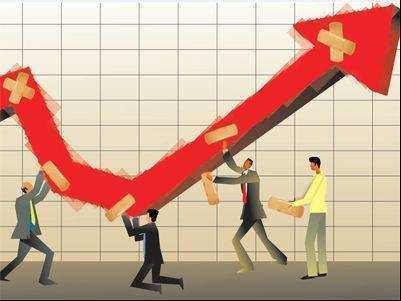INSUBCONTINENT EXCLUSIVE:
Authors: JordanBy Simon Kennedy Enda CurranThe world economy showed signs of stabilising after a recent moderation as manufacturing
activity strengthened for the first time this year.
A purchasing managers index for factories across more than 40 countries rose to 53.5 in
April from March’s six-month low of 53.3, IHS Markit said in a report on Wednesday
Gauges of production and new orders both rose, though export growth slowed.
The numbers reinforce the advice from economists at Goldman
Sachs and JPMorgan Chase not to bet against the world economy just yet
They could calm investors who spent the early part of 2018 fretting about a trade war and fading global growth despite forecasts from the
International Monetary Fund for the fastest expansion this year since 2011.
“Forward-looking orders data point to solid output gains in
coming months,” said David Hensley, director of global economic coordination at JPMorgan Chase in New York
He predicts global growth of 3.9% this year, the same pace as forecast by the IMF.
Economists led by Jan Hatzius at Goldman Sachs are even
more optimistic, saying this week that they are looking for a 4.1% expansion in 2018.
There are still areas of concern
Growth in the euro area slowed to the weakest in six quarters in the first three months of the year
In manufacturing, while the US PMI hit the highest since 2014, the euro zone slipped to the lowest in more than a year.
Among the reasons to
stay optimistic are that activity may have been restrained in the early part of 2018 by one-off factors such as poor weather, an outbreak of
flu in Germany, strikes in France and the timings of Easter and holidays in China.
President Donald Trump’s tax cuts have also yet to
fully take effect while tight labor markets should increasingly generate wage growth, underpinning consumer confidence and spending
Central banks are signaling they will lean toward supporting demand by taking care to remove the record low interest rates of the past
decade.
The Federal Reserve left its benchmark rate unchanged late on Wednesday, acknowledging inflation is close to target without
indicating any intention to veer from a gradual tightening path.
At Deutsche Bank AG, currency strategist Alan Ruskin said the manufacturing
figures should “play against fears of a more precipitous global slowdown,” although he noted the readings in many economies were below
where they were three months ago.
One positive effect from a modest cooling is it could “mitigate some risks of overheating,” according
Some manufacturers have warned that they are running into capacity constraints, forcing them to raise prices.
“There is still scant
evidence that we’re at a turning point in synchronized growth,” said Christian Keller, global head of economics research at Barclays Plc
“We think there has been a soft patch.”

